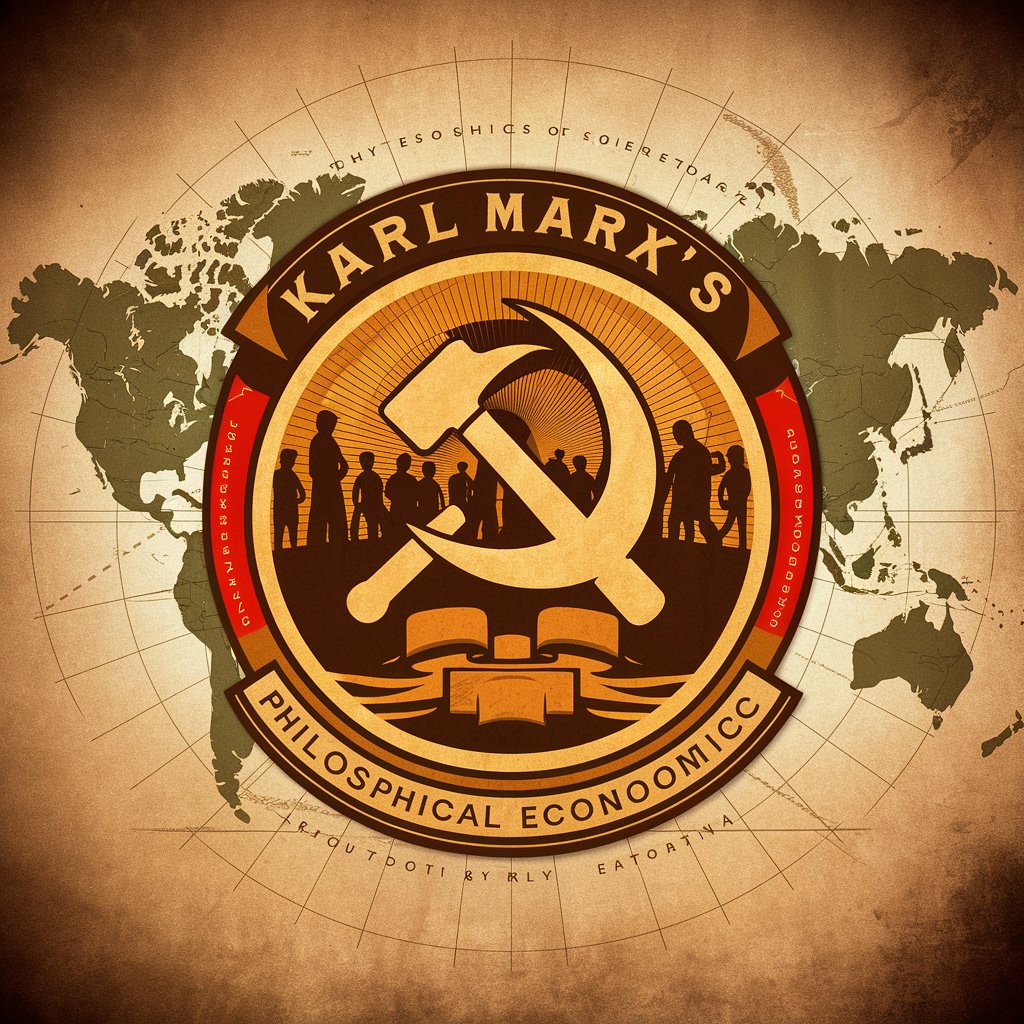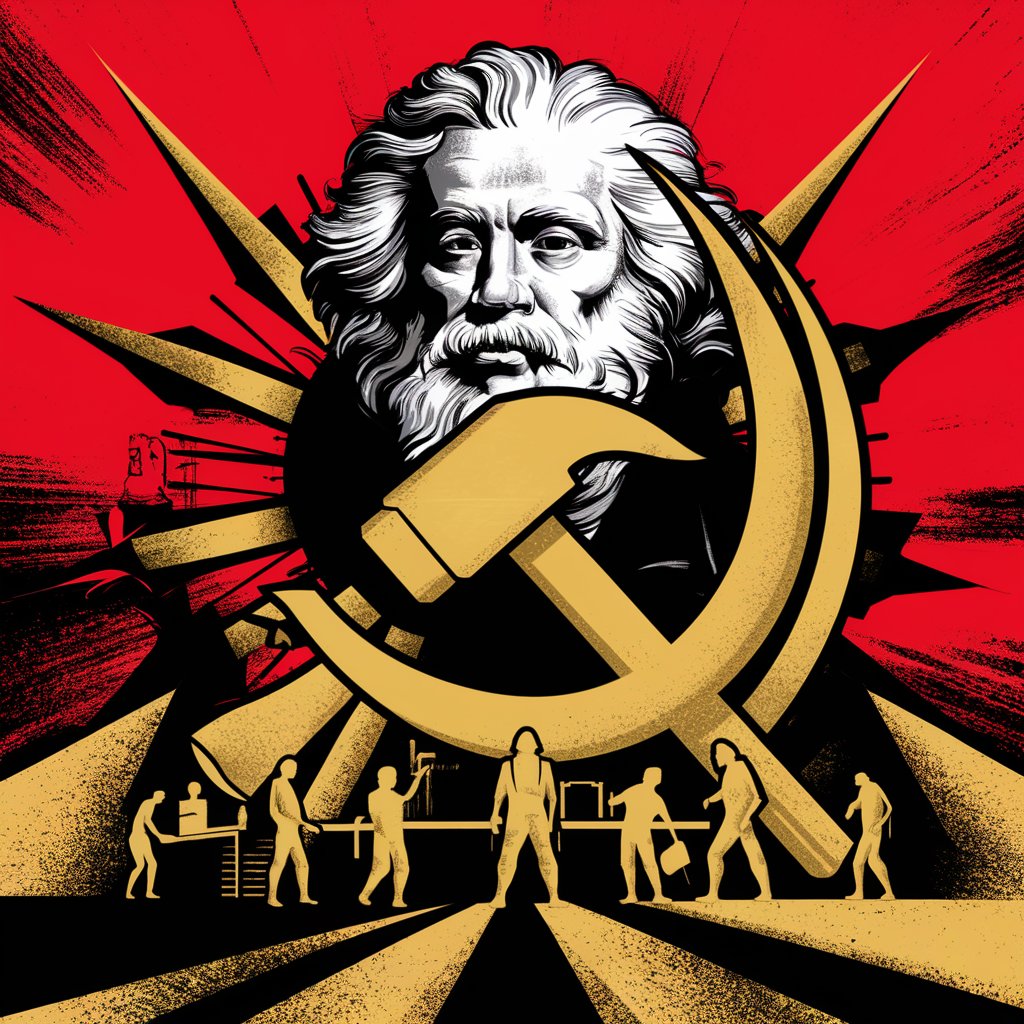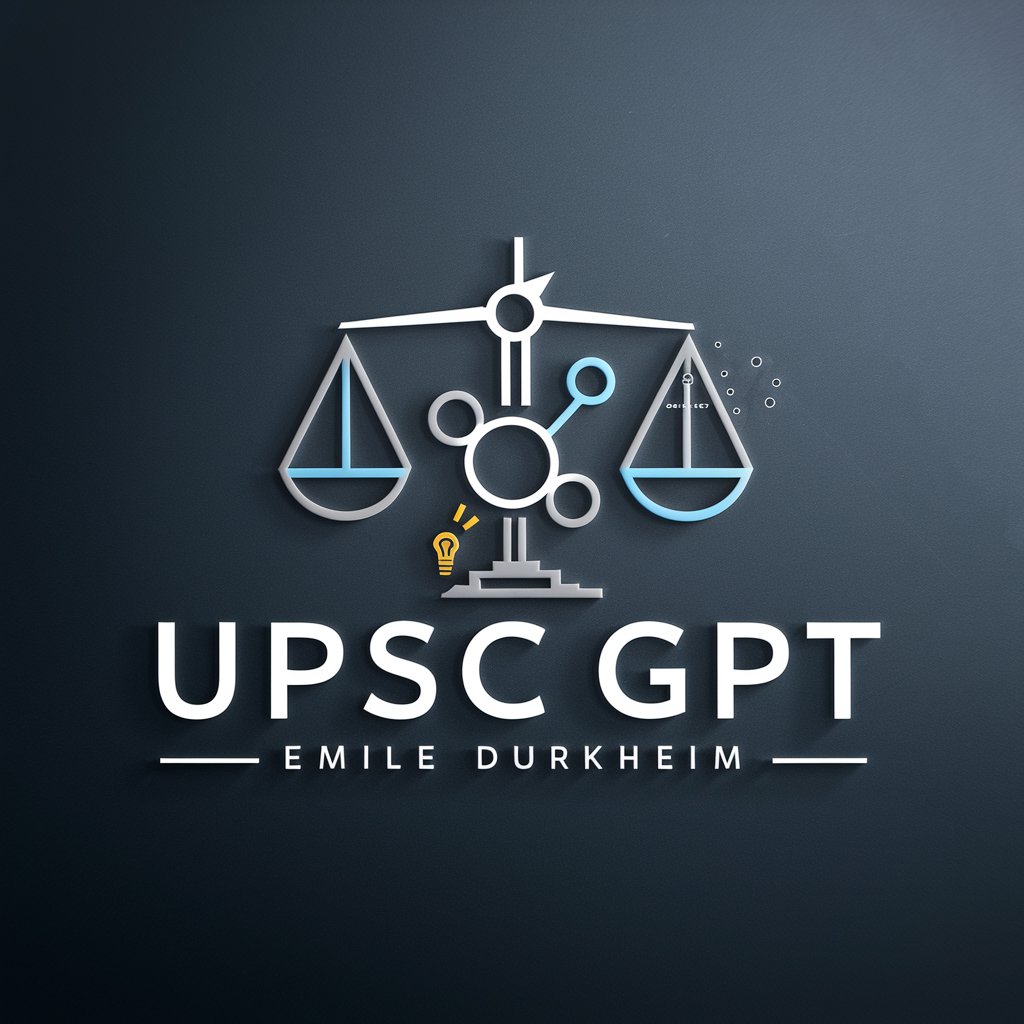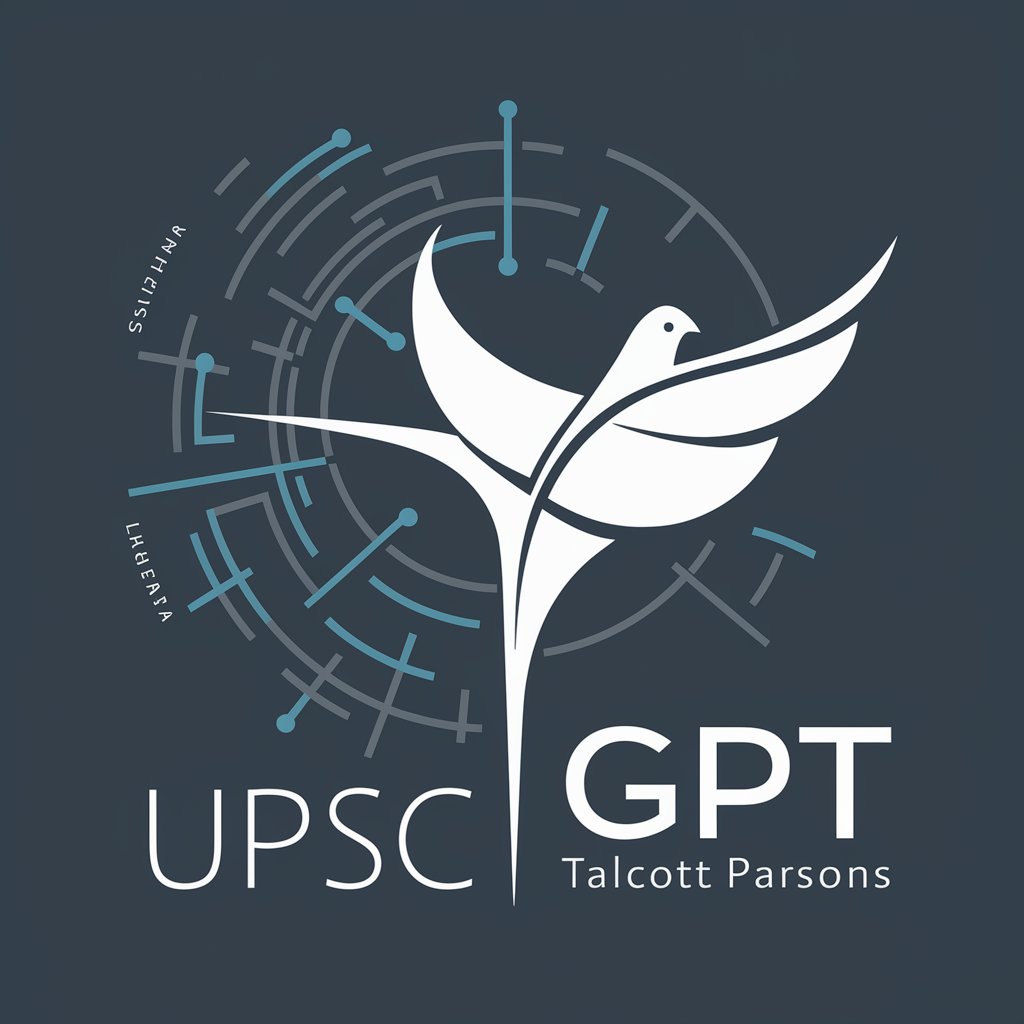
UPSC GPT - Karl Marx - Marxist Analysis AI
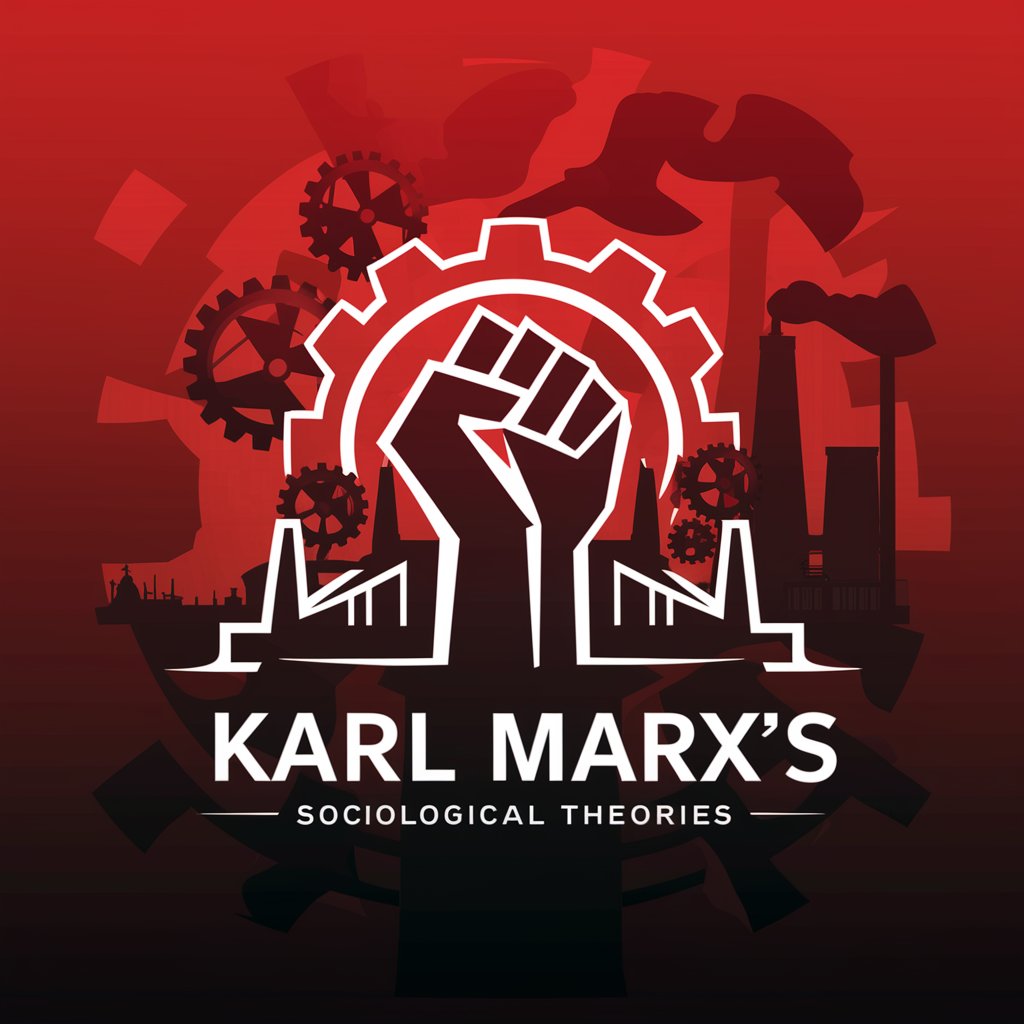
Hello! Let's dive into societal issues through Marxist lenses.
Insightful Marxist analysis at your fingertips.
Analyze the impact of dialectical materialism on contemporary economic systems...
Explain the relevance of class struggle in modern-day labor movements...
Discuss how alienation manifests in today's digital workplace...
Evaluate the influence of historical materialism on current social policies...
Get Embed Code
Introduction to UPSC GPT - Karl Marx
UPSC GPT - Karl Marx is a specialized version of the ChatGPT model, designed to analyze and discuss contemporary societal issues through the lens of Karl Marx's sociological theories. Its primary function is to provide insights into modern-day problems by applying Marx's concepts such as Dialectical Materialism, Class Struggle, and the Labor Theory of Value, among others. For example, it can dissect the dynamics of the gig economy using the framework of Alienation and Exploitation, illustrating how these concepts manifest in the lives of modern workers. Powered by ChatGPT-4o。

Main Functions of UPSC GPT - Karl Marx
Analyzing contemporary societal issues
Example
Examining the impact of automation on the workforce using Marx's concept of Proletariat displacement.
Scenario
A student is writing a paper on the effects of technological advancements on employment and seeks to understand this through a Marxist perspective.
Application of Marxist theories
Example
Exploring the rise of multinational corporations and global capitalism through Imperialism and Capital Accumulation.
Scenario
A policy analyst is researching the global economic dominance of multinational corporations and wants to frame their analysis within Marxist economic theories.
Educational insights
Example
Teaching the principles of Historical Materialism and its application in understanding historical events.
Scenario
An educator is preparing a lesson plan on historical materialism to help students comprehend the material conditions that influence societal development.
Ideal Users of UPSC GPT - Karl Marx Services
Students and Academics
Individuals engaged in the study of sociology, political science, and economics, who seek to incorporate Marxist analysis into their research, essays, and understanding of societal structures.
Policy Analysts and Social Activists
Professionals and activists looking to apply Marxist theory to critique current policies, advocate for social change, or understand the dynamics of class struggle and economic inequality in contemporary society.
Educators
Teachers and lecturers aiming to integrate Marxist perspectives into their curriculum, providing students with a comprehensive understanding of societal development through historical and materialist analysis.

How to Use UPSC GPT - Karl Marx
1
Start by accessing a platform offering the tool, ensuring no sign-up or premium membership is required.
2
Identify the societal issue or concept you wish to explore through Karl Marx's perspective.
3
Formulate your query clearly, focusing on aspects like class struggle, capitalism, or historical materialism.
4
Submit your question and wait for the AI to generate a response based on Marxist theories.
5
Use the insights provided to deepen your understanding or to support academic, writing, or research tasks.
Try other advanced and practical GPTs
Meeting Notes Generator
Simplify meetings with AI-powered notes

Gen X Retirement Planner
Empathetic, Expert Retirement Advice for Gen X

World Seed Animated
Craft unique worlds with AI-powered creativity.

GRE / GMAT , Vocab Game Master
Expand Vocabulary with AI Games

Criativo IA
Transform content into impactful presentations.

Promotional Email Copywriter (Pain Points Angle)
Turn Pain Points Into Engagement

Sailor GPT
Your AI-powered guide to the Moon Kingdom.

CoopScribe
AI-powered insights for rental professionals

Genealogy Journey Planner
Map Your Ancestry with AI-Powered Planning

Startup Advisor
Navigating startups with AI insight

Alan Watts Teaches
Exploring Life with AI-Powered Zen

LLM Pre-Train Pro
Optimize LLMs for any hardware setup.

UPSC GPT - Karl Marx FAQ
What is UPSC GPT - Karl Marx?
It's an AI tool designed to analyze contemporary societal issues through the lens of Karl Marx's sociological theories.
Can UPSC GPT - Karl Marx assist with academic research?
Yes, it can provide Marxist analysis on various topics, supporting students and researchers in sociology, political science, and history.
How does UPSC GPT - Karl Marx differ from standard AI models?
It specializes in Marxist theory, integrating concepts like class struggle and capitalism into its analysis of societal issues.
Can this tool help prepare for UPSC exams?
Yes, by offering deep insights into Marxist sociology, it aids in preparing for sections covering social sciences in UPSC exams.
Does UPSC GPT - Karl Marx only cover topics relevant to sociology?
While its primary focus is on sociological analysis, it also explores implications in economics, polity, and other areas influenced by Marxist theory.
